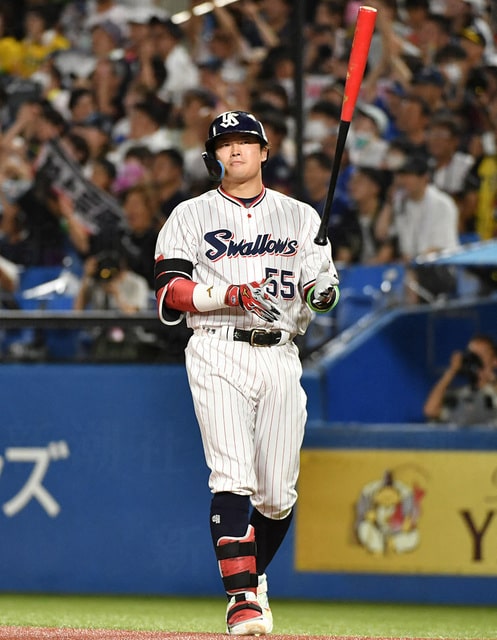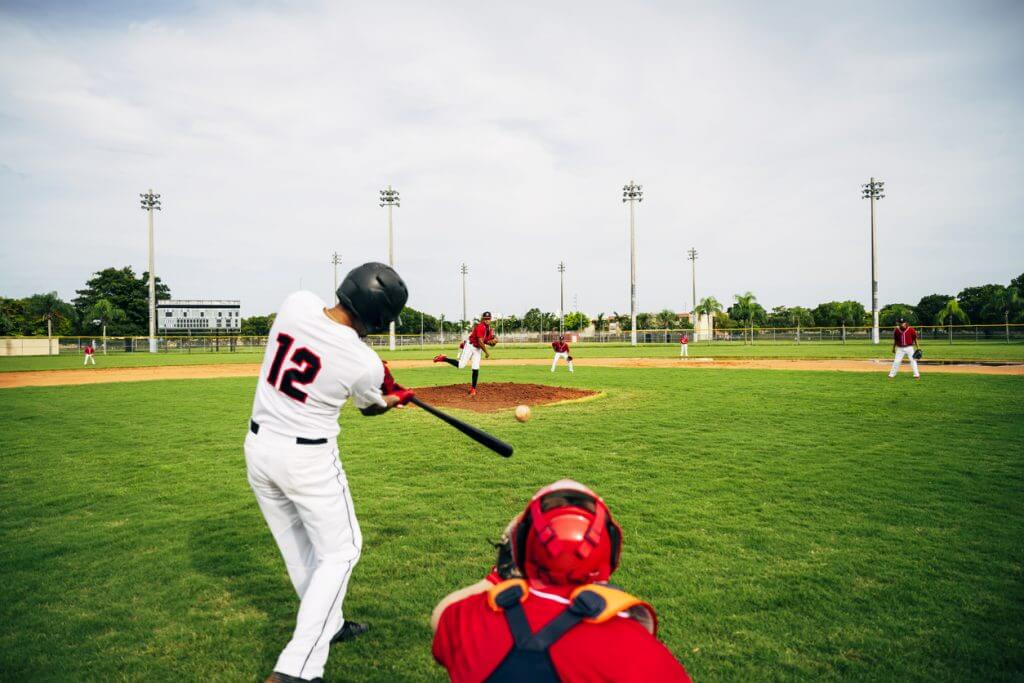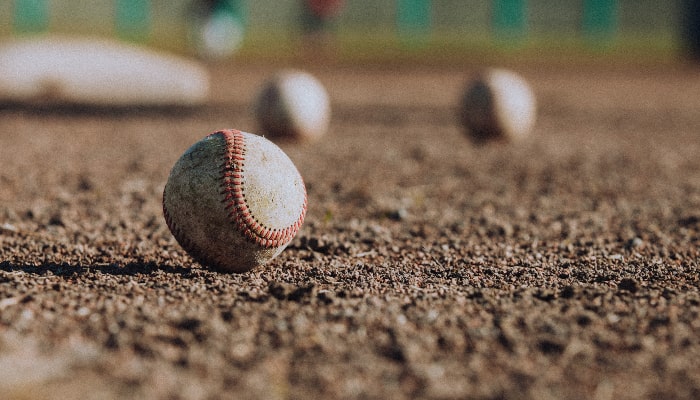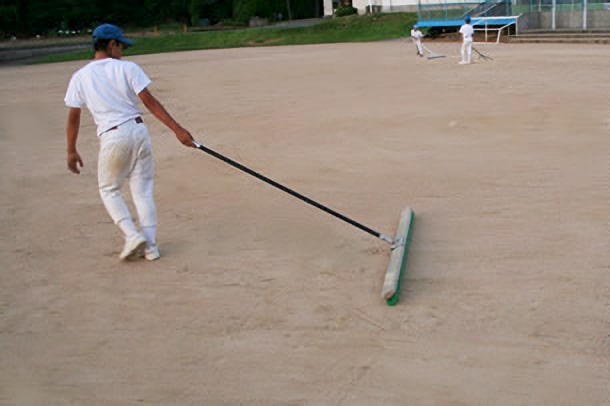
Many people may be anxious about starting baseball in junior high school.
With many athletes starting at a young age, there may be some concern that starting late will put you at a disadvantage.
However, it is possible to be completely successful if you start playing baseball in middle school.
In this article, we will explain in detail the impact and benefits of starting baseball in junior high school, and how to succeed.
We will also introduce some tips to help even beginners enjoy baseball with confidence, as well as some effective training methods, so please take a look.
Now let’s move on to the specific details.
目次
- 1 General opinion on starting baseball in junior high school
- 2 The impact of starting baseball in junior high school
- 3 Success stories of athletes who started in junior high school
- 4 Training methods for players starting from junior high school
- 5 Countermeasures for starting late
- 6 How to stay motivated
- 7 Advice for parents who want to start their children baseball in junior high school
General opinion on starting baseball in junior high school
The general view on starting baseball in junior high school has been changing in recent years.
Traditionally, it has been considered ideal to start playing baseball at an early age, but it has become clear that it is possible to be successful even if you start playing in junior high school.
In particular, there are cases where starting in junior high school can be advantageous not only in terms of acquiring physical abilities and techniques, but also in terms of mental health.
Recent studies have shown that there are increasing numbers of successful players who start playing baseball in junior high school.
With the right guidance and training environment, it is possible to reach the top level even if you start late.
By understanding the advantages and disadvantages of starting baseball in junior high school and making the appropriate preparations, it is possible to be successful at any time.
For players and their parents who start playing baseball in junior high school, it is important to approach the game in a positive manner without worrying about a late start.
This article provides specific information and advice on how to do just that.
Percentage of players who start baseball in junior high school
A certain percentage of players start playing baseball in junior high school.
While many players start playing baseball at a young age, there are also many who start in junior high school.
In particular, in junior high schools where club and team activities are very active, many students are starting to play baseball for the first time.
According to actual statistical data, the percentage of players who start playing baseball in junior high school is approximately 15% to 20%.
This figure represents a significant proportion of the total.
Many of these players go on to excel in high school, college, and even professional competitions.
Players who start playing baseball in junior high school have less experience than other players and so may take longer to master basic techniques.
However, junior high school students are in a period of growth and can make great strides in a short period of time.
With the right guidance and hard work, you can reach a high level.
The advantages and disadvantages of starting late
There are several advantages and disadvantages to starting baseball in junior high school.
advantage
- Take advantage of physical growth : Junior high school students are in a period of growth, so their physical strength and muscle power improve significantly, allowing them to achieve physical growth in a short period of time.
- Fresh Motivation : Athletes who start later will be more enthusiastic about their new sport and will be more motivated to practice.
- Diverse experiences : Playing other sports and activities before coming to baseball allows you to bring different perspectives and skills to the game.
Disadvantage
- Lagging Technique : Players who start at a young age may take longer to master basic skills.
- Increased Competition : At the high school and college levels, you will have to compete against players with years of experience and you may face stiff competition.
- Psychological pressure : Anxiety and pressure about starting late can affect your performance.
Starting baseball in junior high school presents its own challenges, but with the right guidance and support it is entirely possible to be successful.
Junior high school students and their parents who are just starting to play baseball will be able to realize their great potential by taking a positive approach.
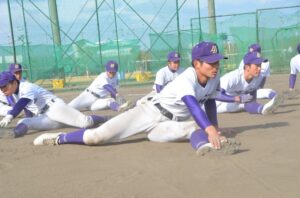
The impact of starting baseball in junior high school
Starting baseball in junior high school has various effects on both the physical and mental aspects.
Understanding these influences and addressing them appropriately can lead to player development and success.
Physical impact
Starting to play baseball in junior high school has a significant impact on a player’s physical condition.
Junior high school students are in the midst of growth, and this is a time when their physical strength and muscle power improve rapidly.
By starting baseball at this time, you can dramatically improve your physical abilities in a short period of time.
1. Improving muscle strength and physical fitness
Junior high school students can improve their basic physical abilities through strength training and physical fitness training. Baseball in particular requires a variety of movements, such as pitching, batting, and base running, so it is necessary to develop balanced muscle strength throughout the body. With the right training program, muscle strength and physical fitness can be improved effectively.
2. Acquiring Motor Skills
Starting baseball in junior high school provides an opportunity to acquire the motor skills specific to the sport. By repeatedly practicing the basic baseball techniques of pitching, batting, and defense, you can develop motor skills and reflexes. In particular, starting sports during the period of growth when the nervous system is actively developing will greatly contribute to improving long-term athletic ability.
3. Risk of injury and its prevention
Junior high school students are in a period of rapid physical growth, so the risk of injury due to overtraining or excessive stress also increases. Therefore, a proper training plan and sufficient rest are essential. By receiving guidance from a sports medicine specialist or trainer, you can minimize the risk of injury and grow safely.
Mental impact
Starting to play baseball in junior high school has a great impact on a player’s mental health.
The mental growth you gain through sports will become a useful skill in many aspects of life.
1. Increased self-confidence and self-esteem
By trying a new sport and gradually improving, you can feel your own growth. This will increase your self-confidence and self-esteem, and help you maintain a positive mental state. In particular, successful experiences in games and cooperation with teammates will give you great confidence.
2. Improving teamwork and communication skills
Baseball is a team sport, so cooperation and communication with teammates are important. By starting baseball in junior high school, you can learn how to cooperate and communicate with others. These skills will play an important role in school life and future social life.
3. Improved ability to cope with stress
Your ability to cope with pressure and stress during games and practice will also improve. Through sports, you can learn how to remain calm and do your best even in difficult situations. This will allow you to acquire stress management skills in your daily life and schoolwork.
Starting baseball in junior high school has a significant impact on a player both physically and mentally.
With the right support and guidance, you can make the most of this impact and grow in a healthy way.
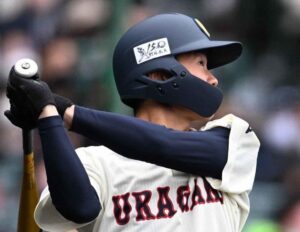
Success stories of athletes who started in junior high school
There are many examples of successful players who started playing baseball in junior high school.
With the right guidance and hard work, even players who start late can reach the top level.
Below, we will explain in detail the cases of professional players who actually started playing baseball in junior high school and were successful, as well as the key points to success even if you start in junior high school.
Successful professional athletes
Many players who started playing baseball in junior high school have gone on to have success as professional baseball players.
Their success stories are a great encouragement to players who start late.
1. Shohei Otani
Shohei Otani started playing baseball in junior high school and quickly developed his talent. In high school, he attracted attention by throwing fastballs up to 160 km/h, and even after going pro, he continues to excel as both a pitcher and a batter. Otani’s success shows how important proper training and self-management are.
2. Hideki Matsui
Hideki Matsui is one of the players who started playing baseball seriously in junior high school. He solidified his foundation in junior high school, performed well at Koshien in high school, and achieved great success in Japan and the major leagues after going professional. Matsui’s success teaches us the importance of hard work and continuous practice.
3. Ichiro
Ichiro also started playing baseball in junior high school and is known for his astonishing achievements. His continued efforts and self-discipline led him to set numerous records in both Japan and the United States. Ichiro’s case proves that even if you start late, you can become a top athlete if you have a strong will and effort.
Key points for success even if you start in junior high school
There are a few important points to keep in mind in order to be successful even if you start playing baseball in junior high school.
By keeping these points in mind, even players who start late can reach a high level.
1. Get the right guidance
Getting the right guidance from a professional coach is essential to improving your technique. Learning the correct form and tactics will help you acquire skills efficiently in a short period of time. Take advantage of individual instruction or group lessons to do the training that’s right for you.
2. Effort and continuous practice
Continuous practice is essential to success. It is important to train every day and always have a goal in mind. By continuing to manage yourself and make an effort, you can improve your skills and physical condition and become more competitive.
3. Strengthening your mentality
Baseball is also a mental sport. It is important to develop the ability to handle pressure and the mental strength to bounce back from failure. By receiving mental training and psychological support, you can gain mental strength.
4. A balanced lifestyle
Eating a balanced diet, getting enough rest, and adequate relaxation are important for maintaining a healthy body and mind. Avoid overtraining and stress, and maintain a healthy lifestyle.
By putting these points into practice, even players who start playing baseball in junior high school can be very successful.
It’s important to have the right environment and support to help you reach your full potential.
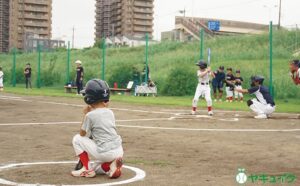
Training methods for players starting from junior high school
For players who start playing baseball in junior high school, it is very important to know efficient training methods.
By creating an appropriate training program and implementing a practice menu for acquiring skills, you can achieve significant progress in a short period of time.
How to create an efficient training program
For junior high school students, creating an effective training program directly leads to their growth both physically and mentally.
Here’s how to put together an effective program:
1. Set clear goals
Before you start training, it is important to set short-term and long-term goals. For example, having specific goals such as “increase pitching velocity by 5 km within one month” or “achieve a stable batting form by the end of the season” will help you concentrate on your daily training.
2. Introducing a diverse training menu
It is effective to incorporate a diverse menu rather than relying on a single type of training. For example, by incorporating strength training, endurance training, speed training, stretching to improve flexibility, etc. in a balanced manner, you can improve your overall physical ability.
3. Balance between training frequency and rest
It is important to balance the appropriate training frequency and rest. Overtraining can lead to injury, so it is necessary to set aside 1-2 rest days per week to refresh your body. On rest days, focus on recovery, refueling, and doing light stretching.
4. Get professional training
If possible, we recommend getting the guidance of a professional coach or trainer. By providing a customized program tailored to the abilities and goals of each individual athlete, you can efficiently improve your technique and physical strength.
To master a technique, it is essential to repeatedly practice basic skills.
Below we introduce a practice menu suitable for players who start playing baseball in junior high school.
1. Pitching practice
Repeat practice to master the basic pitching form. It is important to acquire an accurate pitching form using a pitching machine or tee. Also, by starting with short-distance catch balls and gradually increasing the distance, you will develop control and a sense of distance.
2. Batting practice
Practice using tee batting and batting cages to solidify your batting form. By repeatedly practicing basic swing movements, you can improve the stability of your batting. In addition, it is important to work on individual issues with advice from your coach.
3. Defensive Practice
We will conduct practical defensive practice on the field. We will repeatedly practice catching ground balls and flies, and acquire appropriate movements according to the situation. We will also learn the basic movements of infield defense and outfield defense, and develop defensive skills that can contribute to team play.
4. Base Running
Learn the basics of base running and acquire efficient base running techniques. You can improve your base running skills by repeatedly practicing your starting dash and how to run the shortest distance between bases.
By implementing these training programs and practice menus, even players who started playing baseball in junior high school can efficiently acquire skills and improve.
With proper planning and continued effort, you will hopefully develop into a high-level player.
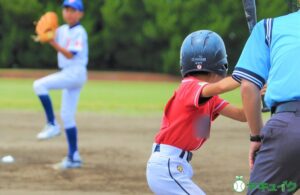
Countermeasures for starting late
For players who start playing baseball in junior high school, it is important to take measures to make up for starting late.
With the right guidance and self-training, you can catch up and become more competitive.
Here we will explain in detail about individual instruction and the use of professional coaches, as well as self-training and practice methods you can do at home.
Individualized instruction and specialized coaching
Individual instruction and the use of specialized coaches can be extremely effective for players who start playing baseball in junior high school.
By receiving direct instruction from a coach with specialized knowledge and experience, you can achieve significant progress in a short period of time.
1. Advantages of individual instruction
Individual instruction allows you to teach according to the abilities and challenges of each player. For example, by receiving instruction that focuses on small details such as improving pitching form or batting technique, you can effectively improve your skills. In addition, individual instruction can be done at the player’s own pace, so you can grow without forcing yourself.
2. How to use a specialized coach
By using a specialized coach, you can receive a professional training program. For example, by taking lessons several times a week, you can gradually improve your skills from mastering basic techniques to mastering applied techniques. In addition, specialized coaches incorporate the latest training methods and techniques, so you can always learn new knowledge.
3. Mental Support
Specialized coaches not only provide technical guidance, but also mental support. By receiving advice on how to handle pressure and how to maintain motivation, you can also develop mental strength. This directly translates to improved performance in matches and practice.
Self-training and home practice
Self-training and practice methods that can be done at home are also important for players who start playing baseball in junior high school.
By practicing training that can be incorporated into your daily life, you can continually hone your skills.
1. Strengthening basic physical strength
In self-training, it is important to strengthen basic physical strength. Improve your physical strength and muscle strength by running, jumping, strength training, etc. This will create the physical foundation necessary for baseball. In particular, it is important to train both endurance and explosive power in a balanced manner.
2. Repetitive practice of skills
As part of the skills training you can do at home, try practicing pitching and batting repeatedly. For example, by playing catch against a wall or tee-ball repeatedly, you can allow the basic movements to sink into your body. It is also effective to check your form in the mirror and identify areas for improvement.
3. Improve flexibility
Don’t forget to improve your flexibility. Incorporating stretching and yoga can increase the range of motion of your joints and help prevent injuries. In particular, increasing the flexibility of your shoulders and hips can improve your pitching and base running performance.
4. Mental training
It is a good idea to include mental training in your self-training. Meditate and do image training to improve your concentration, and strengthen your mental side during games and practice. This will allow you to remain calm even in pressure situations.
By taking these measures, even players who start playing baseball in junior high school can acquire skills and improve efficiently.
With proper guidance and continued effort, it is expected that they will develop into competitive players.

How to stay motivated
For players who start playing baseball in junior high school, maintaining motivation is very important.
Staying motivated encourages continued training and growth.
Here we will explain in detail how to set mid- to long-term goals and short-term goals that will help you feel the results.
Setting mid- to long-term goals
It is important to set mid- to long-term goals to keep you motivated.
This allows players to understand their own progress and motivates them to work hard towards their goals.
1. Set specific goals
When setting mid- to long-term goals, it is important to set specific and measurable goals. For example, you could set goals such as “Become a regular in high school baseball within three years” or “Become a player who attracts the attention of professional scouts in five years.” Having specific goals gives you a sense of purpose in your daily practice.
2. Set realistic goals
Goals should be realistic and achievable. Setting goals that are too high can lead to frustration if you fail to achieve them. Set realistic, incremental goals and enjoy a sense of accomplishment to keep you motivated.
3. Share your vision
It is also important to share your mid- to long-term goals with your coach and family. By working towards your goals with the support of those around you, you can move forward without feeling lonely. It is also effective to regularly check your progress and review your goals as necessary.
Set short-term goals to see results
Setting short-term goals in addition to mid- to long-term goals will make it easier to see your daily achievements and maintain your motivation.
1. Accumulating small successes
Short-term goals are set as small goals that can be achieved within a few weeks to a few months. For example, set specific goals such as “Improve my batting average by 5% this month” or “Keep the score at zero for three innings in next week’s practice game.” This allows you to continue to build up confidence by accumulating small successes.
2. Utilizing Feedback
It is also important to receive feedback based on the results of practice and games. Receive constructive feedback from your coach and teammates, use it to find areas to improve, and have the attitude of working hard towards your next goal. Positive feedback will further increase your motivation.
3. Self-evaluation and reflection
It is also effective to regularly evaluate yourself and reflect on your growth. For example, at the end of each month, check your progress toward your goals. Praise yourself for the goals you have achieved and think of ways to improve those you have not achieved to encourage continued growth.
4. Create a specific action plan Create a
specific action plan to achieve your short-term goals. For example, create a specific action plan such as “practice tee batting for 30 minutes every day” or “improve your stamina by running three times a week.” This will help you see a concrete path to achieving your goal, making it easier for your daily efforts to bear fruit.
By combining medium- to long-term goals with short-term goals, players who start baseball in junior high school can stay motivated and develop effectively.
By clarifying your goals and working towards them in a planned manner, you will be able to pave the way to success.

Advice for parents who want to start their children baseball in junior high school
For children who start playing baseball in junior high school, parental support is extremely important.
With the right support from parents, children will feel more comfortable practicing and making progress.
Here we will explain in detail how to support your child and how to balance their baseball with other activities.
How to support children
When your child starts playing baseball in junior high school, the key is how you support them as a parent.
Providing the right support can help motivate children and promote their development.
1. Give positive feedback
It is important to acknowledge the efforts of children and give them positive feedback. For example, by saying “You did a good job today” after practice or praising a child for good play in a game, you can increase a child’s self-esteem. This will allow children to practice with confidence.
2. Go at your child’s pace.
Don’t force strict practice, but support your child at their own pace. It’s important to give them a rest when they’re tired or stressed. It’s important to maintain a good balance and foster a long-term attitude.
3. Preparing a practice environment
It is also effective to prepare a practice environment at home. By providing a space to play catch in the yard or park, or by providing a batting tee, you can provide an environment where children can easily practice independently. This will increase the opportunities for them to be exposed to baseball on a daily basis.
4. Emphasis on communication
Value communication with your child and actively listen to what they have to say about practice and games. By understanding the worries and anxieties your child has and providing appropriate advice, your child will be able to play baseball with peace of mind. Also, by talking together about goals and dreams, you can deepen the bond between parent and child.
How do you balance your baseball career with other activities?
For junior high school students, it is also important to balance their baseball with other activities.
Balancing academic studies with other leisure activities will help in their holistic development.
1. Thorough time management
It is important to make a schedule and manage your time thoroughly. Make a balanced plan that combines school classes, homework, baseball practice, and other hobbies and activities. It is especially important to make time for schoolwork.
2. Encouraging Diverse Experiences
We encourage active participation in activities outside of baseball. For example, by experiencing areas of interest such as music, art, and volunteer work, children can broaden their horizons. Diverse experiences promote well-rounded growth.
3. Support for stress management
If your child is feeling stressed, it is important to support them. By thinking about and practicing relaxation and stress relief methods together, you can maintain your child’s mental health. It is also important to provide them with time to rest and refresh.
4. Family Cooperation
All family members should cooperate and be willing to support their children’s activities. For example, by sharing the responsibility of taking the children to and from practice and games, or by reviewing the division of roles within the household, you can create an environment where your child can balance baseball with other activities with peace of mind.
The support that parents give to their children who start playing baseball in junior high school has a big impact on their growth and success.
With the right support and a well-balanced lifestyle, your child will be able to approach baseball with confidence.
